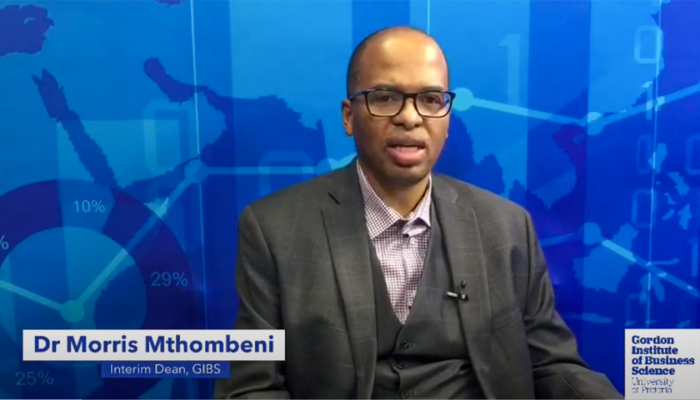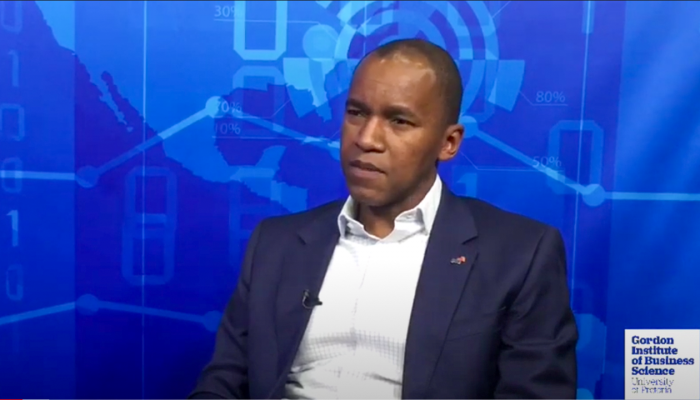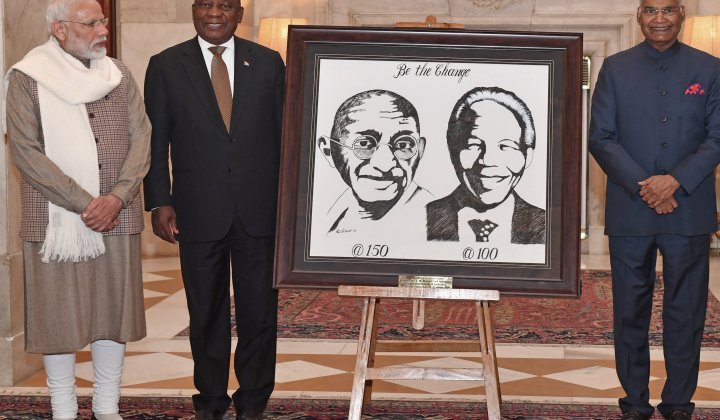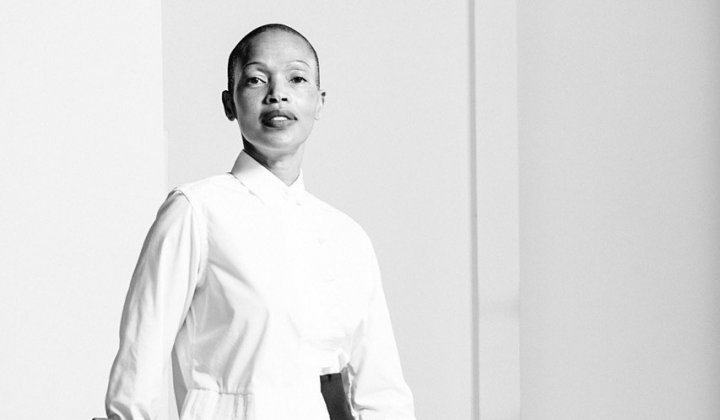PwC Africa CEO, Dion Shango, explored the issues with GIBS Interim Dean, Dr. Maurice Mthombeni, during a recent Flash Forum.
Despite the tough financial climate brought about by the pandemic, PwC Africa empowered its people, did not shed jobs and managed to pay bonuses, according to Shango, attributing this to careful planning, big fintech investments and the culture and values of an organisation that binds its employees. When sweeping lockdowns were introduced due to the spread of Covid-19, PwC Africa closed its offices while operations continued seamlessly with everyone working virtually, revealed Shango.
“If you had asked me 10 months ago whether PwC would be able to carry out the audit of a large bank from start to finish, all done remotely, I would have said ‘Forget it! Not a chance!’ But certainly, when necessity forces you into a particular position, it's incredible what human beings come out and do. And they just blow you away with their creativity and innovation,” explained Shango, adding that safety of PwC’s employees and customers was his priority. “Without our people, there is no PwC. They personify the brand and bring it to life every single day.”
Professional services firms were already expert at remote working with most of their staff accustomed to working from clients’ premises. A survey conducted by PwC further indicated that about 80% of its employees were able to be effective and work well remotely, while about 10% preferred being in the office and the remaining 10% struggled with working alone at home. Shango attributed one of the biggest challenges experienced by staff to cultural adjustments that resulted in mental withdrawals among those who were not accustomed to working in isolation.
Professional services firms have not had it easy in recent times, not only in South Africa but also in various other parts of the world, owing to scandals, including the association here with the Gupta family. Shango admitted that PwC Africa was working towards winning back the trust and cleaning up its image, which had suffered some reputational damage.
“For more than 100 years, we have been the very guardians and custodians of all things trust-related, from a corporate financial perspective. So, when we find ourselves in the headlines for all the wrong reasons, it’s a fundamental problem.
Trust has been eroded, and confidence has been lost by society. We need to earn it back,” said Shango, adding that his company was guided by a set of core values that include care and trust.
To keep up with the changes in technology in the industry, PwC has invested heavily in digital up-skilling to ensure that employees have advanced skills across all operations. This investment, largely into cloud-based platforms, began about 15 months ago and came in handy when the Covid-19 pandemic struck.
As the world tries to come to terms with the new normal and adjust to the effects of Covid-19, Shango’s wish for PwC Africa’s employees is for them to always feel welcome in their work environment, to be inspired, and to bring their best selves every day as they build an organisation with a culture of inclusivity.






